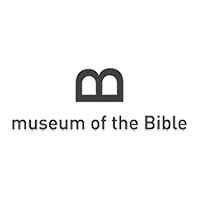WASHINGTON — The Mayflower Compact is the shortest American political document of enduring significance. With just 197 words, the Pilgrims sowed the seeds of liberty and self-government that made their small New England settlement a cradle of American democracy.
On Nov. 18, Museum of the Bible will host “1620: The Mayflower Compact and America’s Founding,” an in-person and virtual panel discussion from 7 p.m. to 9 p.m. (ET) in the World Stage Theater. The dialogue will be co-hosted by Joseph Loconte and Eric Patterson and will feature commentary from Wilfred M. McClay, William B. Allen and Tim Hall. The panel will explore the idea that the 17th-century Pilgrims were the true forerunners of America’s Founders and examine the Mayflower Compact as a blueprint used to frame America’s founding principles as embedded in the U.S. Constitution.
“Those who signed the Mayflower Compact before the ship finally landed came from different backgrounds and with different goals. However, they came together to form a self-governing ‘civil body politic,’ said Anthony Schmidt, senior curator at Museum of the Bible. “The idea of self-governance, that they could enact laws and offices for the good of the community by mutual consent, would find fuller expression later in the nation’s founding documents. These ideas still shape the way Americans think about government today.”
Joseph Loconte is the director of the B. Kenneth Simon Center for American Studies at the Heritage Foundation and AWC Family Foundation Fellow. He is also a senior fellow in Christianity and culture at The King’s College, a senior fellow at The Trinity Forum in Washington, D.C., and a scholar with The Faith and Liberty Discovery Center in Philadelphia. Loconte is the author of numerous books, including the bestselling, “A Hobbit, a Wardrobe, and a Great War: How J. R. R. Tolkien and C. S. Lewis Rediscovered Faith, Friendship and Heroism in the Cataclysm of 1914–1918.” His commentary on religion and public life has appeared in The New York Times, the Wall Street Journal, The Washington Post, National Affairs, the National Interest, the Huffington Post, The New Republic, National Geographic and the National Review.
Eric Patterson serves as executive vice president of the Religious Freedom Institute. He is scholar-at-large and past dean of the Robertson School of Government at Regent University and a research fellow at Georgetown University’s Berkley Center for Religion, Peace & World Affairs. Patterson is the author or editor of 15 books, including “Politics in a Religious World: Toward a Religiously Informed U.S. Foreign Policy.” He has also published on religious freedom, democracy and democratization in International Studies Perspectives, Review of Faith and International Affairs, Public Integrity, the International Journal of Religious Freedom, Survival, Journal for the Scientific Study of Religion and Security Studies, The Washington Post and The Washington Times.
Wilfred M. McClay is a professor of history at Hillsdale College and a visiting scholar for the Simon Center for American Studies at the Heritage Foundation. He is the author of six books, including “The Masterless: Self and Society in Modern America,” which was awarded the Merle Curti Award of the Organization of American Historians for the best book in American intellectual history. McClay is a member of the U.S. Semiquincentennial Commission, which has been charged with planning the celebration of the nation’s 250th birthday in 2026.
William B. Allen is emeritus dean of James Madison College, emeritus professor of political science at Michigan State University and has been a member of the Mackinac Center Board of Scholars since 1995. Currently, he is a Veritas Fund Senior Professor in the Matthew J. Ryan Center for the Study of Free Institutions and the Public Good at Villanova University and is also a visiting professor in history and American government at the Ashbrook Center at Ashland University. He has published several books, including, “George Washington: America’s First Progressive” and “Rethinking Uncle Tom: The Political Philosophy of H. B. Stowe.” He also edited such collections as “George Washington: A Collection and The Essential Antifederalist,” and has published numerous scholarly articles on political philosophy and American political thought.
Tim Hall is a senior fellow at the Religious Freedom Institute, a high school social studies educator with Vance Virtual Village Academy, an adjunct history instructor at Piedmont Community College and founder of the website, Religion Matters. He also serves as the Vance County Coordinator for the North Carolina Council on the Holocaust. Dr. Hall has authored several textbook supplements, curricula, standards and popular history texts, including “The Complete Idiot’s Guide to World History” and “The Complete Idiot’s Guide to the Middle Ages.” Most recently, Hall participated in the Harvard Divinity School Religion and Public Life’s religious literacy summer institute for educators. Within the field of education, Dr. Hall advocates for civic, digital and religious literacy and global competence. He was recently honored as the 2022 Vance County Teacher of the Year.
Tickets for in-person participants are $4.99 for Museum of the Bible members and students and $9.99 for general admission and are available here. For those attending in person, light hors d’oeuvres will be served. Tickets for virtual participants are $4.99 for Museum of the Bible members and students and $9.99 for adults and are available here.
More information about Museum of the Bible is available here.

